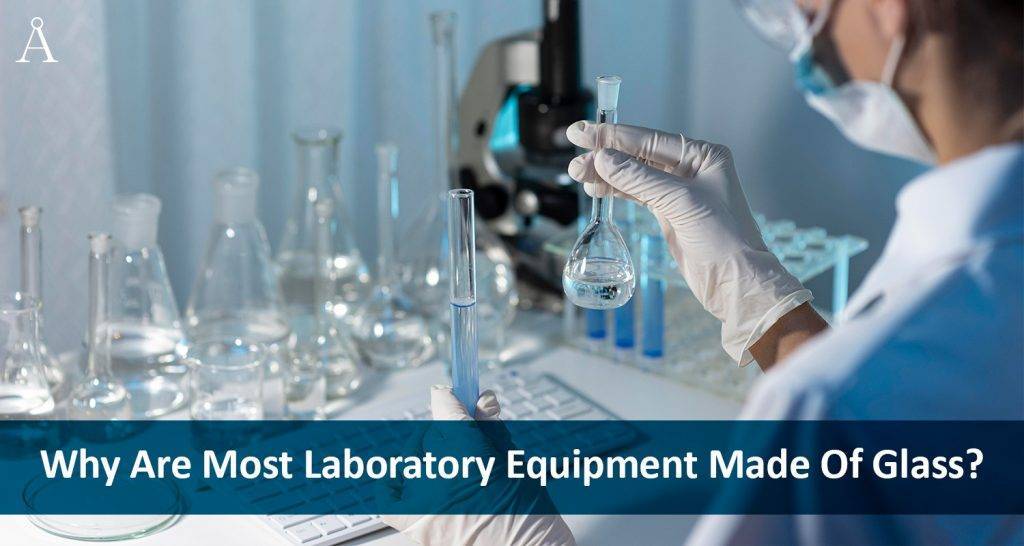Laboratories are a crucial segment in research and development and glass lab equipment are the tools that aid in performing experiments. The foundation of science and medicine is established on the grounds of the experiments performed in the laboratories. Also, in education and training, the laboratories for physics, chemistry, biology, and mathematics are the centers of learning and observation. It is perceived that the physical involvement of students in performing experiments enables improved comprehension of the theories and principles.
The interesting fact is that most of the equipment used in laboratories is made of glass. There are several tools and equipment used to execute various experiments. Each of this equipment possesses a specific function. So, every instrument in a laboratory is used to perform various sets of experiments like scaling, measuring, mixing, boiling, filtering, etc. The exactness in results attained through physical investigation helps in assessing the legitimacy of the study. Thus, experiments are the basis for inventions and research.
When a lot of equipment is used in various experiments, it is to be noted that most of them are made from glass. There are certain prevailing factors that contribute to the wide-scale use of glass lab equipment.
Factors that are Responsible for the Use of Glass Lab Equipment
Laboratory glassware comes in various shapes, sizes, textures, and chemical properties. The scientific experiments demand instruments made of stable physical and chemical properties. The significant cause is to avoid reaction with the chemicals used in various experiments.
Noted below are the important factors that responsible for the application of extensive use of glass lab equipment:
- Glass is a non-reactive element that is resistant to almost every type of chemicals used in experiments. It is a great feature that acts as a major advantage of glassware in laboratories. Since a wide variety of chemical and chemical components are used in laboratories, so the glass is the most reliable choice for performing every experiment.
- The transparency of the glass is useful for scrupulous observation. Change of color, chemical reactions, consistency, quantity, quality, etc- the physical characteristic of every element of experimentation can be easily perceived.
- Glass is one such component that can be transformed into any shape and size. It can be folded, bent, molded, and given any shape. So, it is the most convenient lab equipment material that is suitable for every requirement.
- Special types of glasses like Borosil can withstand high temperatures. So an experiment that demands high-temperature boiling requires glassware. Borosil glass is greatly durable to extreme temperatures.
- The laboratory glassware is easy to clean. It means they do not get greased and can be conveniently washed.
These are primarily the major advantages of using glass in laboratory equipment.
The Types of Glassware in Laboratories
There are diverse forms of glass lab equipment employed in performing various experiments and research. These are listed below:
- Funnels- These are generally used while pouring liquid from one container to another to avoid spillage. Normally they are cone-shaped. However, funnels used to separate solids from liquids have a bulb shape. These are known as separatory funnels. The mouth of the separatory funnel is closed with a stopcock. It prevents the spill of liquids.
- Beakers- Beakers are the most commonly used lab equipment. There are multiple uses of beakers like the mixing of liquids, pouring liquids, storing chemicals, and even heating various chemical elements over the soaring flame. The beakers are also used to measure the quantity of fluids. So they act as a measuring tool too.
- Pipets- Often plain or graduated, pipets are used to extract liquid from a vessel. One can precisely measure the quantity of liquid to be extracted with a pipet.
- Graduated Cylinders- Taller than and narrower than beakers, these cylinders aid in deriving improved measurements. The top of the graduated cylinder is fitted with a ring that protects the glass from any impact.
- Burettes- These are narrow measuring cylinders that have a tap at the bottom. It helps in transporting the exact amount of liquid to a different container.
- Volumetric Flasks- Like beakers, these flasks also act as storage containers. However, volumetric flasks enable impeccable measurements. It is greatly used for measurement precision. These flasks have a tapered neck with a conical or spherical shape.
To conclude, there are various types of glass lab equipment that serve an enormous purpose and uses. These instruments are the foundation for performing effective experiments in various fields.
Know about Physics Lab Equipment


